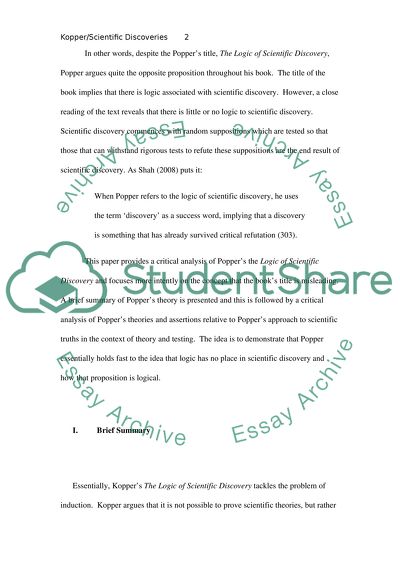Cite this document
(“Critical review of Karl Poppers book: The Logic of Scientific Thesis”, n.d.)
Retrieved from https://studentshare.org/finance-accounting/1404862-critical-review-of-karl-poppers-book-the-logic-of
Retrieved from https://studentshare.org/finance-accounting/1404862-critical-review-of-karl-poppers-book-the-logic-of
(Critical Review of Karl Poppers Book: The Logic of Scientific Thesis)
https://studentshare.org/finance-accounting/1404862-critical-review-of-karl-poppers-book-the-logic-of.
https://studentshare.org/finance-accounting/1404862-critical-review-of-karl-poppers-book-the-logic-of.
“Critical Review of Karl Poppers Book: The Logic of Scientific Thesis”, n.d. https://studentshare.org/finance-accounting/1404862-critical-review-of-karl-poppers-book-the-logic-of.


